Legacy Stories
Losing Jared: A Mother's Mission in the Wake of Tragedy
Jared Crippen was a 16-year-old high school student in Brick, New Jersey. A star wrestler and lacrosse player, Jared suffered a concussion in March 2019 that led to headaches and sensitivity to light. He returned to the lacrosse field two weeks later but began to show uncharacteristic behaviors like sleeping during school, crying for no apparent reason, and talking back to his mother. On the morning of April 23, 2019, Jared took his life. In her heart, his mother believes his unusual behavior and suicide was related to mood and behavioral symptoms of his concussion. She’s sharing Jared’s story to educate others about the potential effects of concussion and to prevent future tragedies like Jared’s.
Click here to support the CLF HelpLine, our service to support patients and families struggling with recovery from brain injury.
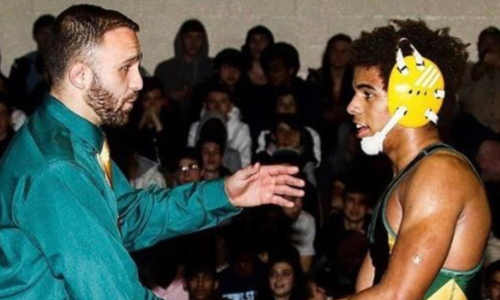
This story adheres to the Recommendations for Reporting on Suicide from reportingonsuicide.org
By Brandon Boyd
Laura Lowney entered her son Jared’s room in Brick, New Jersey at 6:00 a.m. on the morning of April 23, 2019. He wasn’t there. This had happened before. Jared could be any number of places. He could be lifting at the gym. He could be surfing. He could be at the lacrosse fields. But an ominous feeling told Laura something was very wrong.
The night before, Jared had left to go to a party. He returned late that night and went to Laura’s room to say goodnight. Jared was 16, popular, handsome, and athletic, but he was never ashamed of how much he loved his mother. He hugged her tight, then bent down at the foot of the bed to kiss the family cat, Nala. Jared came back and hugged Laura again.
“I love you mom.”
“You seem mellow, Jared. Are you okay?” Laura asked.
“I’m okay. I’m just tired,” Jared said as he left the room.
Golden Boy
Born on December 6, 2002, Jared Crippen was special from the start. Baby Jared was constantly smiling. Tantrums were not in his repertoire.
Jared’s teachers found him adorable and appreciated his work ethic and infectious energy. He got along with everyone, worked hard, and thrived in school.
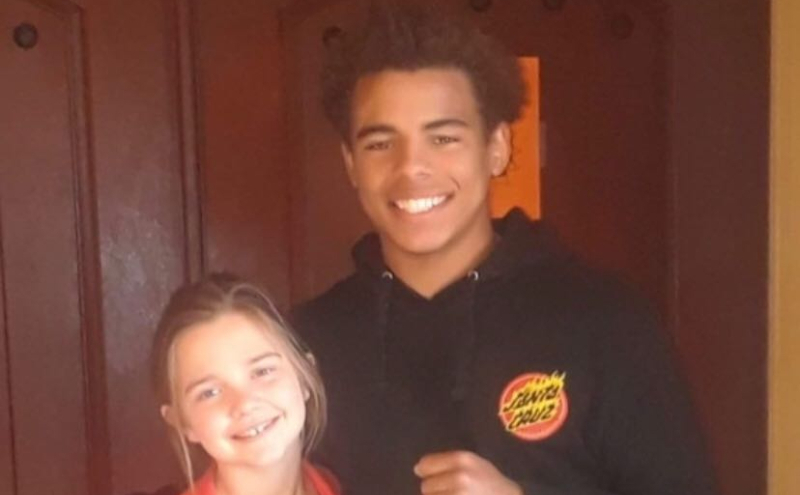
Jared was also naturally athletic. He got on a surfboard and balanced himself in a lagoon for the first time in fifth grade. Twenty-four hours later he was riding waves. In just one day, a lifelong hobby was born.
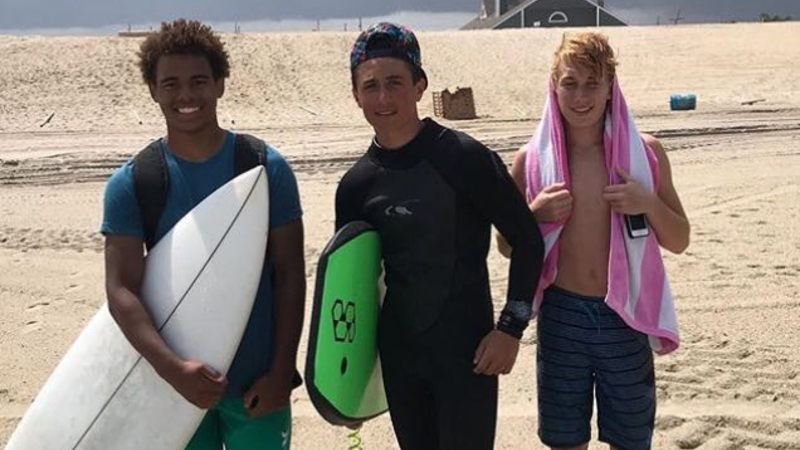
Jared wanted to wrestle and play lacrosse. Jared pleaded to follow in his older brother Jaden’s footsteps as a wrestler, but Laura held him out of competition until sixth grade. Once he started his strength, coordination, and speed allowed him to excel in both sports. As a freshman at Brick Memorial High School, Jared made the varsity wrestling and lacrosse teams.
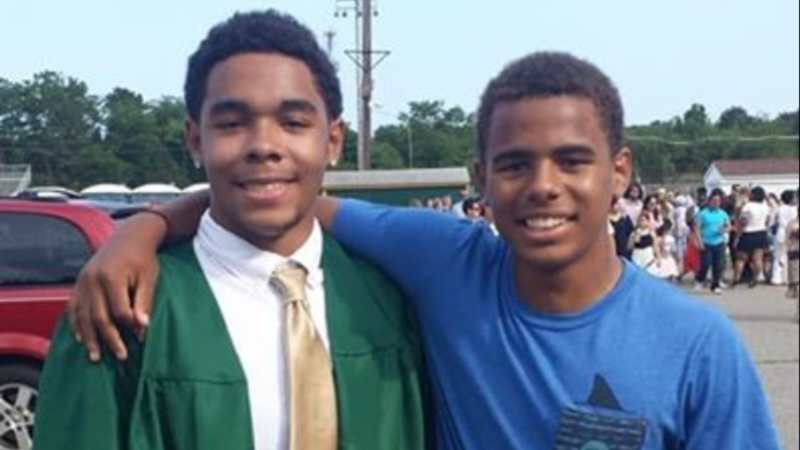
Jared reached the regional championships for wrestling while competing against juniors and seniors. College coaches took note of his athletic ability.
“He was a caring friend and teammate. He had that ‘it’ factor. I could feel it. People were attracted to him,” Jared’s wrestling coach Mike Kiley said. “When he would walk into the gym, students would flock to him. He was just that type of kid. You wanted to be around him.”
In lacrosse, Jared’s ability to win face-offs and fly up the field untouched for goals had him dreaming of playing at Johns Hopkins.
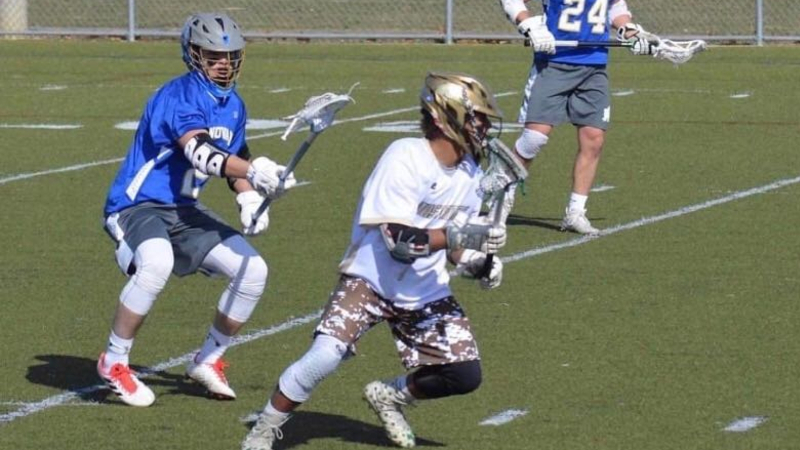
He also excelled in his one season of football his freshman year, but the sport wasn’t for him. Football’s demands made it hard to paddle out later in the day to surf. Despite prodding from coaches, Jared called it quits after one season.
Surfing wasn’t a team sport in the traditional sense, but Jared found community along the beach with friends, surfers from neighboring schools, local riders, and even small business owners who, like most people he encountered, adored him. Surfing offered Jared something football, wrestling, and lacrosse never could.
"Surfing was no competition, no coaches, just him and the ocean," Laura said. "He was free."
“Mom, I don’t feel so good.”
Heading into his sophomore lacrosse season, Jared was eager to build off the success of the previous year. He was starting at midfielder for the Mustangs.
With three minutes left in a preseason scrimmage on March 14, 2019, Laura momentarily turned away from watching the game when she heard that Jared had collided with a teammate.
Jared collided face-first with a teammate and was sent to the ground. He came off the field, where Laura went to check in on him. Jared waved her off, assuring her he was fine.
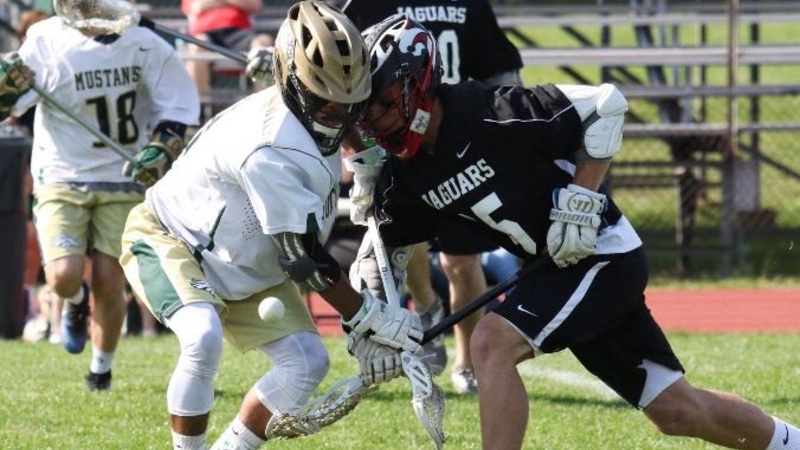
Once the game was over, a still-helmeted Jared told Laura he was going with his friends to IHOP instead of coming home for dinner. About an hour later, Jared came home and walked up behind her in the kitchen.
“Mom, I don’t feel so good.”
Laura turned around to see Jared for the first time without his helmet on. There was a gash on the left side of his face. He said his head was pounding and his body felt tingly and almost numb. Without hesitation, she took him to the hospital.
ER doctors diagnosed Jared with a concussion. They told him to lay low; no screens for a few days, no exercise.
Laura watched Jared sleep the night they returned from the hospital. Doctors reassured her he would be fine, but she wasn’t one to take chances.
For the first three days after his concussion, a splitting headache and extreme sensitivity to light kept Jared from leaving his room. Laura delivered food to him and blacked out his windows to keep the light out.
Eight days after his concussion, Jared said the kitchen light bulb was “bright like the sun.”
Eventually, Jared could move around the house if he had his sunglasses on. His doctor cleared him to return to school. Lacrosse was temporarily off the table, but Laura took him to practice so he could watch his team through sunglass lenses. She demanded his coaches not let him do anything physical. They obliged.
“No, mom. I’m fine.”
Two weeks after the concussion, Jared went back to the doctor. He went through a battery of tests on his memory, vision, and balance. During the balance test, Laura saw the normally sturdy Jared struggle to maintain his balance on one foot. Still, the physician said Jared passed the test.
“What do you mean? He looks shaky. He usually balances a lot better than that,” Laura said.
Jared’s doctor reassured Laura and Jared his balance was satisfactory. He was ready to seek full clearance from the athletic trainer who went ahead and cleared him to fully participate in practice. He was set to play in Brick Memorial’s next game.
Jared was back in action, but Laura didn’t stop checking on him. After every practice she asked if he was feeling alright and if he had a headache. Each time she received the same response.
“No, mom. I’m fine.”
In the next few games after returning to play, Laura noticed a change in his playing style.
Jared normally received the ball and made a beeline to the goal to take a shot. The trademark speed was still there but gone was his usual aggressiveness. Jared was routinely passing up wide open shots to send teammates the ball.
“I’m just playing relaxed, mom. I’m just having fun,” he assured her.
Laura noticed Jared was frequently picking at the left side of his bristly head of hair. She called him on it, but Jared brushed that off too. His hair was knotted. Laura’s questions were also beginning to receive an uncharacteristic shortness from Jared.
Jared got rides to school from friends. He was usually ready to go in the mornings and waiting on them to arrive. Now, Laura had to get Jared out of bed because his friends were waiting on him.
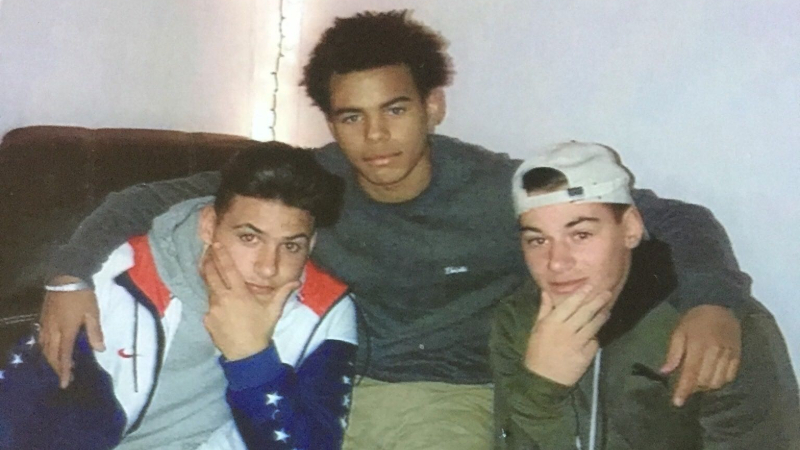
Jared with Joey Zalinski (left) and Anthony Albanese (right). Zalinski and Albanese later switched their soccer and football numbers, respectively, to Jared's number 7.
That April, Laura found her antacid tablet container in Jared’s room. Jared said he overdid it at Buffalo Wild Wings.
Later that week, Laura had to pick Jared up from school because of his upset stomach. Again, he said the wings were the culprit.
The change in playing style, the attitude, the sleeping in, the hair picking, and the stomach issues were all peculiar for Jared but not peculiar for a typical teenager. Laura was slightly concerned about the changes, but they all had reasonable explanations. Teenagers get tired. Teenagers have attitude. Teenagers are about the only people who would eat the ghost pepper wings at Buffalo Wild Wings.
Normal teenage stuff, she thought.
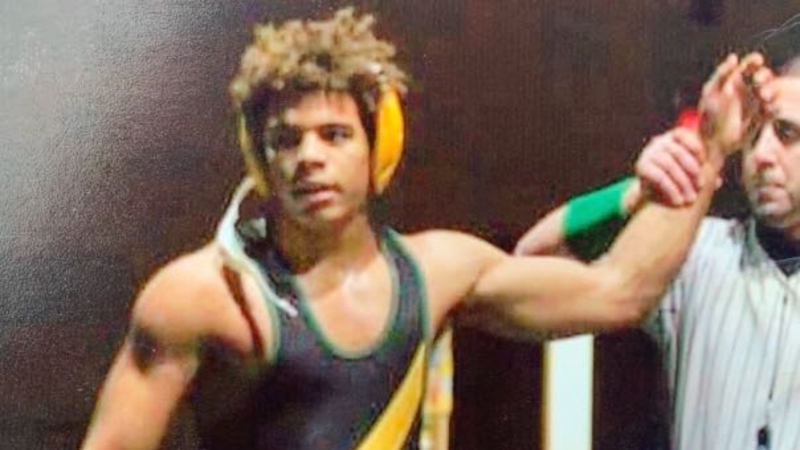
On April 22, 2019, Jared came home and sat on the couch with a burrito in-hand.
He laid next to Laura to debrief about his day. He had completed his first Driver’s Ed drive with James Brite, who was also one of his lacrosse coaches. It went great. He was set to get his learner’s permit the next day. He talked with Coach Brite about next season. He sent texts to teammates about the pasta party Laura would be hosting next week before the big game against rival Brick Township.
He left for a party and returned home later that night to say goodnight to Laura and embrace her for the last time.
“I can still feel that hug,” she said.
On April 23, 2019, Laura woke up to find Jared wasn’t in his room. She called Jared’s best friend Anthony, who like all of Jared’s friends, called Laura “mom.”
“I don’t know where he is, mom.”
Laura jumped in her car and drove around town to look for Jared. He wasn’t at the gym. He wasn’t at the lacrosse fields. He wasn’t surfing.
Frantic, Laura drove home to try and collect herself. On her way, she saw a police car pulled over on the side of the street. She begged the officer to help her find Jared.
He told her to hold on a minute. Almost immediately detectives pulled up. Her heart sunk when the detectives approached her.
“Jared’s gone,” one of them said.
Jared Crippen took his own life. He left a note, written in his signature cursive handwriting. He was 16 years old.
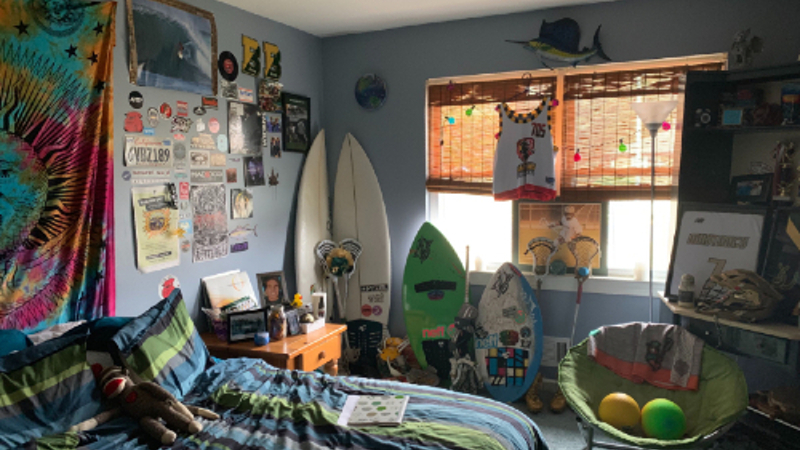
Jared’s wake was on April 27, 2019. More than 1,500 people came to pay their respects.
Laura received a letter in the mail a week after Jared’s death from a mother of one of his classmates. She explained how her daughter suffered from anxiety and didn’t have many friends at school, but she sat next to Jared in a class. Whenever she walked into class, Jared took his headphones out, smiled, and spoke to her like few others at school would.
In the grief-filled weeks to come, friends and family came to console Laura and the rest of Jared’s family. More sympathy. More love for Jared. Still no answers.
“Jared? Not Jared. Why would he do something like that? He was so happy.”
But one night, a family member asked Laura: “Didn’t Jared have a concussion not too long ago?”
“Yeah. Why?” Laura replied.
“You better look into that. Because it could have something to do with what he did.”
So, Laura looked into it. Her research started a cascade of information-gathering. She learned more about concussion symptoms than she was ever told from any doctor or athletic trainer.
She learned after concussion, an athlete should be slowly reintegrated into their sport rather than going from zero to full-participation like Jared did. She learned about Post-Concussion Syndrome (PCS) and the potential for concussion symptoms to last longer than two weeks. She learned about the depth of emotional symptoms, including depression and anxiety, that can accompany concussion.
Her research led her to connect Jared’s string of odd behavior in the last month of his life to his concussion. Her instinct about the wobble in the doctor’s office. The upset stomach. The short fuse. Even the hair-picking could have been an attempt to relieve pressure in his head.
And those were just the signs she knew about.
In the weeks following Jared’s death, his friends were mainstays at Laura’s house. They ate meals there and shared stories about Jared. They laughed, cried, and told Laura other ways Jared was struggling.
She learned Jared skipped a second period, but not to get into any trouble. He skipped class to sleep in a friend’s car.
She learned Jared started drinking at parties a couple of weeks before his death. Friends say he left multiple parties because he would get upset and start crying for no reason and want to leave. Once, he and his girlfriend were at a party for just 10 minutes before leaving because Jared’s head hurt so badly.
Jared was usually the life of the party. At the party the night before his death, he sat quietly with earbuds in. Friends saw him with tears in his eyes before he left.
According to a 2018 study published in the Journal of the American Medical Association, the rate of suicide is twice as high for individuals who have experienced a traumatic brain injury.
Suicide is a complex public health issue, involving many different factors. According to the American Foundation for Suicide Prevention, suicide most often occurs when stressors exceed current coping abilities of someone suffering from a mental health condition. The hopeless tone of Jared’s note began to make more sense.
Laura believes Jared never fully healed from his concussion. When he took his life, Jared wasn’t the happy and carefree kid he had always been.
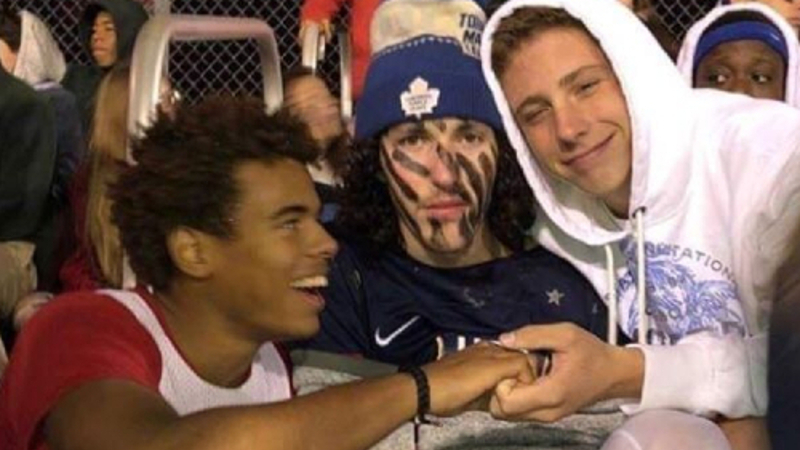
“These are all the things I found out after my son was gone,” Laura said. “If I would have known these things, my son would still here. I would have immediately gotten help.”
Laura sought community to cope with her loss. She soon found out she wasn’t alone.
She spoke with Graham and Cathy Thomas, whose son Zander took his life following a concussion in 2013. She learned about Austin Trenum, who died by suicide in 2010 at age 17.
“My 16-year-old son Jared took his life 5 weeks after a concussion. I don’t know how to put my story into words... yet I have so much to say,” Laura said in a message to CLF.
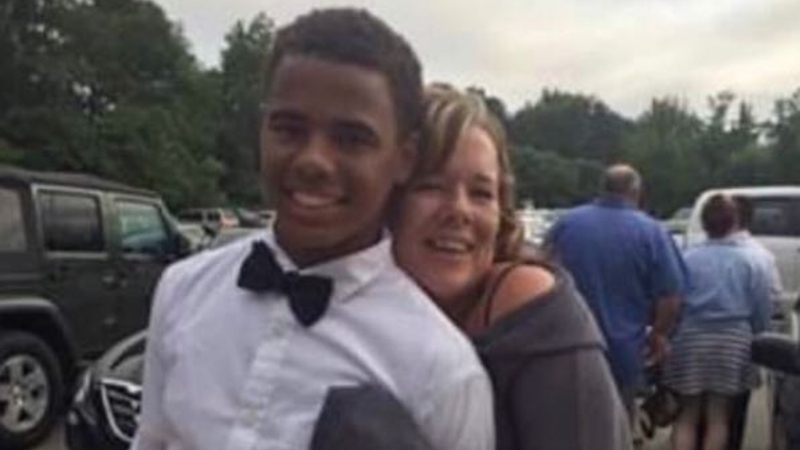
CLF connected her to Gil and Michele Trenum, Austin's parents. Talks with the Thomas and Trenum families have given Laura comfort and support. They can empathize with the inescapable guilt Laura feels and they can also remind Laura about the role a concussion likely played in Jared's story.
"There are people out there to help you get through this," Laura said.
“I wouldn’t wish this on anyone else.”
In the face of tragedy, Laura hopes Jared’s story can affect change. She has simple messages for parents and athletes. Messages that could have saved Jared’s life.
For athletes: it’s never worth it to play through a concussion or shake off your symptoms. Don’t play with your health, and don’t risk your friends’ health either. If a teammate is acting out of character after a concussion, as Jared was, let an adult know.
“It's not going to help you get back in the game. If you're not feeling well, it's going to make it worse. You're not going to perform like you should,” Laura said. “Wait until you're ready, until you're okay to go back in, because this is your life.”
For parents, Laura learned three key lessons. The first is concussion needs to be taken seriously. The second is to seek out a concussion clinic to find a specialist for your child’s concussion management. And lastly, any abnormal behavior after a concussion should be taken seriously.
“I want my son here. I could care less about how long he was out from his sport,” Laura said. “He needed to get well. I know he wouldn't be happy, but you know what? It's his life. And I didn't know it was his life. Now, I know it was his life.”
She hopes athletes, parents, teammates, coaches, teachers, and everyone around a young athlete knows the role they should play in concussion management.
“It takes a village. Everybody has to watch that kid.”
"Jared was out there with us today."
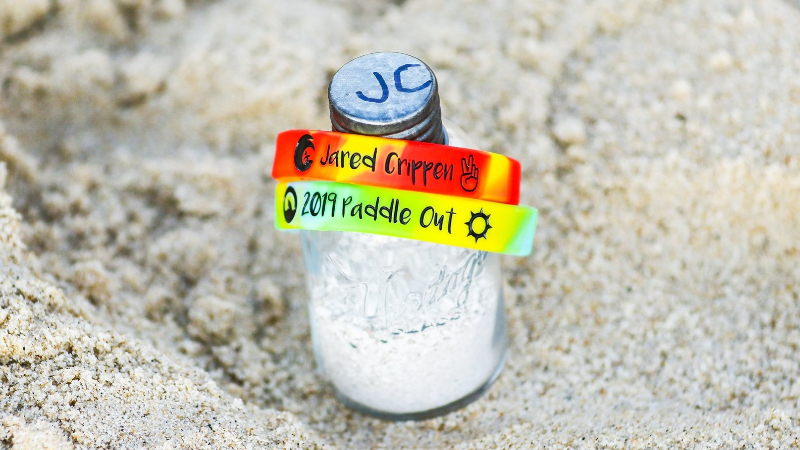
In late June 2019, family and friends congregated to celebrate Jared’s life with a Paddle Out in Manasquan, New Jersey. Christian Surfers of Manasquan organized the Paddle Out, which is a high honor in surfing culture, reserved for respected members of the surfing community.
The wake in April was full of heartache and confusion. The Paddle Out was a celebration.
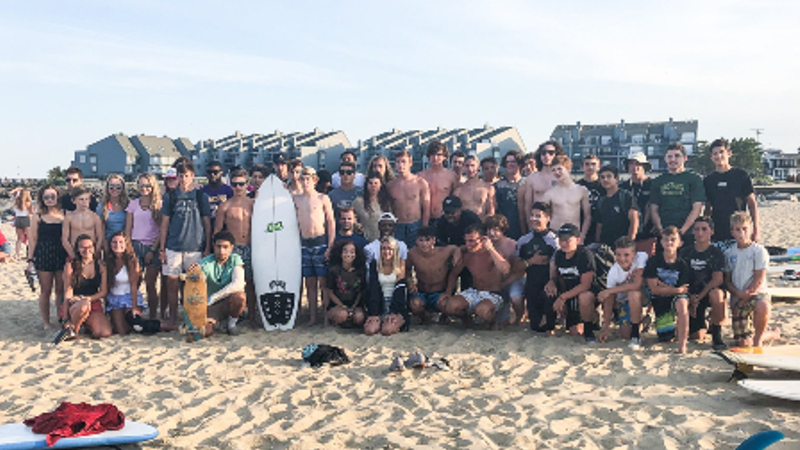
Rob Brown, a coach and teacher of Jared’s, spoke at the Paddle Out. So did Anthony Albanese, the friend Laura called the morning of Jared’s death. Anthony later switched his football number to Jared’s #7. People wrote notes about Jared on seashells before sending them into the water. The group of Jared’s friends and other surfers paddled out to the ocean with flowers on their boards. Riders formed a circle, they prayed, and some of Jared’s ashes were spread into the ocean.

“Jared loves everyone who is here today,” Laura said as she closed the day’s festivities. “I need you all to know that if you ever have a concussion or you’re feeling anxious or sad or anything, you have to go to a parent or a coach. They can get you the help you need.”
When riders paddled out that day with flowers and ashes, the Manasquan waters were flat. Then, almost right after Jared’s ashes were poured into the water, waves started crashing. One surfer approached Laura and said what everyone else was thinking.
“I just want you to know Jared was out there with us today.”
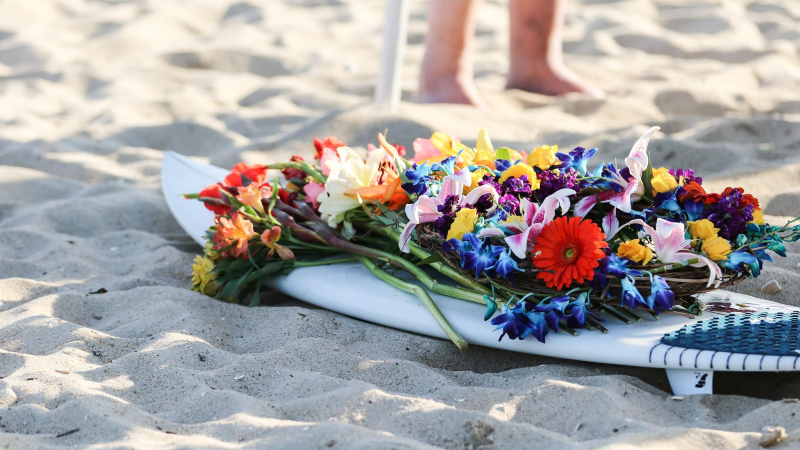
Suicide is preventable and help is available. If you are concerned that someone in your life may be suicidal, the five #BeThe1To steps are simple actions anyone can take to help someone in crisis. If you are struggling to cope and would like some emotional support, call the National Suicide Prevention Lifeline at 1-800-273-8255 to connect with a trained counselor. It’s free, confidential, and available to everyone in the United States. You do not have to be suicidal to call.
Are you or someone you know struggling with lingering concussion symptoms? We support patients and families through the CLF HelpLine, providing personalized help to those struggling with the outcomes of brain injury. Submit your request today and a dedicated member of the Concussion Legacy Foundation team will be happy to assist you. Click here to support the CLF HelpLine.
Suicide Prevention Resources

Nobody should have to go through a crisis alone. Dial 9-8-8 if you or a loved one is in crisis or suicidal.
Suicide Prevention Lifeline
We can all play a role in preventing suicide. Learn the five steps to help you #BeThe1To support someone in crisis.
#BeThe1To Resources